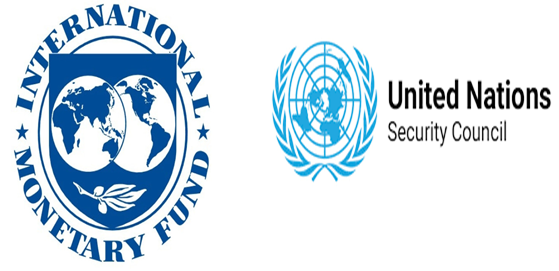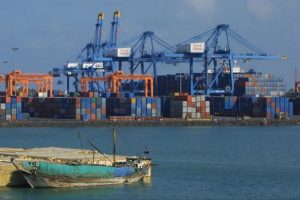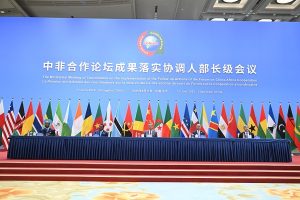
Africa, a continent rich in diversity, culture, and potential, stands as a vibrant tapestry of nations that deserve a seat at the table of global decision-making. As the world becomes increasingly interconnected and interdependent, it is imperative that Africa is not only represented but also actively engaged in shaping the policies, agendas, and initiatives of international organizations such as the United Nations (UN) and other global bodies.
Africa is home to over 1.3 billion people and 54 diverse nations, each with its unique challenges, aspirations, and contributions to the global community. It is essential that African voices are heard and African perspectives are taken into account in international forums to ensure that policies and decisions reflect the continent’s interests and priorities.
Africa can contribute its wealth of knowledge, experiences, and solutions to pressing global issues such as climate change, poverty alleviation, peace and security, and sustainable development by promoting diversity and equity in international organizations,
Historically, Africa has been underrepresented and marginalized in international organizations, with power dynamics often skewed in favor of Western nations. This imbalance not only undermines the credibility and legitimacy of these institutions but also perpetuates a system of inequality that hinders Africa’s ability to fully participate in global governance.
The International Monetary Fund (IMF), and other key international bodies, Africa can work towards redressing historical injustices and creating a more equitable and inclusive global order through advocating for increased African representation in the UN Security Council, the World Bank,
Africa is a continent of immense potential, with a young and dynamic population, abundant natural resources, and a growing economy that presents opportunities for innovation, growth, and development. By ensuring African representation in international organizations, the world can benefit from Africa’s creativity, resilience, and entrepreneurial spirit.
International organizations can tap into the continent’s vast potential to drive positive change, foster cooperation, and build a more prosperous and sustainable future for all nations by empowering African voices to shape global policies and decisions.
In an increasingly interconnected world, it is essential to build bridges of understanding, cooperation, and solidarity among nations. By including Africa in the decision-making processes of international organizations, the global community can foster a spirit of unity, collaboration, and mutual respect that transcends geographical boundaries and cultural differences.
The continent’s representation in international organizations can serve as a catalyst for dialogue, partnership, and shared action on common challenges, enabling nations to work together towards common goals, address global crises, and build a more peaceful and prosperous world for future generations.
In what could be a promising move, IMF lately announced that it is working on creating a more inclusive international finance system. He remembered the time when the membership approved a 50 percent increase in IMF member countries’ quotas and agreed to develop by June 2025 possible approaches as a guide for further quota realignment.
“IMF’s Board of Governors issued a resolution to create an additional chair for Sub-Saharan Africa on the IMF Executive Board. This will come into effect on November 1.”
Underscoring the growing importance of Africa, the IMF has offered sub-Saharan Africa an additional seat on its executive board. This will take the number of directors to three out of 24. The IMF’s sister organization, the World Bank, is also planning to raise the number of directors from the African continent to three.
On the other hand there have been efforts to ensure a permanent seat at the United Nations Security Council. And over the years, there have been consecutive consultations between the African Union and other stakeholders.
The main objective of this Consultation was to avail a platform for a multi-stakeholder’s conversation with the African CSOs to popularize and support the Common African Position on the UNSC Reform as well as the Ezulwini Consensus, which seek to remove the historical injustice that is imposed on the African continent, ahead of the ministerial meeting holding in Algiers next month.
The African Position on the UNSC Reform led to the establishment of a Committee of ten (10) Heads of State and Government (known as the C-10), which is coordinated by the Republic of Sierra Leone. The C-10 has been in the forefront championing for the implementation of the African Common Position.
AU Commissioner for Political Affairs, Peace and Security stated that the African Union (AU) has been a fundamental actor in the enforcement of peace and security on the continent. However, the challenges posed by the Africa’s limited representation in the UNSC restrict the AU’s ability to deliver effective and concrete conflict resolution. He also added that the quest for the UN Security Council Reform is a legitimate demand as we make effort to support conflict resolution in Africa, it is impossible to disassociate it from peace operations, largely concentrated on the continent and implemented by the UN Security Council. During recent decades, Africa has been the main topic dealt with by the UNSC. Interaction between Africa and the UN’s main decision-making forum is currently vital for addressing and resolving conflicts on the continent.
Ambassador Bankole also highlighted latest developments relating to the implementation of the African Position as well as the implementation of the Oyella Roadmap, which was adopted in November 2023 in the Republic of Equatorial Guinea. The outcome of the Consultation will feed into the forthcoming 11th Ministerial Meeting of the C-10 on the UNSC Reform, which will be held on 09-10 June 2024 in Algiers, Algeria.
Participants in the Consultation thanked Commissioner Bankole for organizing this importation engagement and pledged to popularize and support the African Position on the UNSC Reform and requested the African Union Commission to continue organizing such processes with the wider African civil society organizations.
In conclusion, the representation of Africa in the United Nations and other international organizations is not only a matter of equity and justice but also a strategic imperative for building a more inclusive, sustainable, and peaceful world. By championing African voices, perspectives, and priorities on the global stage, international organizations can harness the continent’s potential, promote diversity and equity, and create a more just and prosperous future for all nations.
BY STAFF REPORTER
THE ETHIOPIAN HERALD SATURDAY 10 AUGUST 2024



